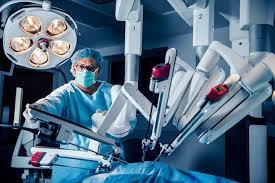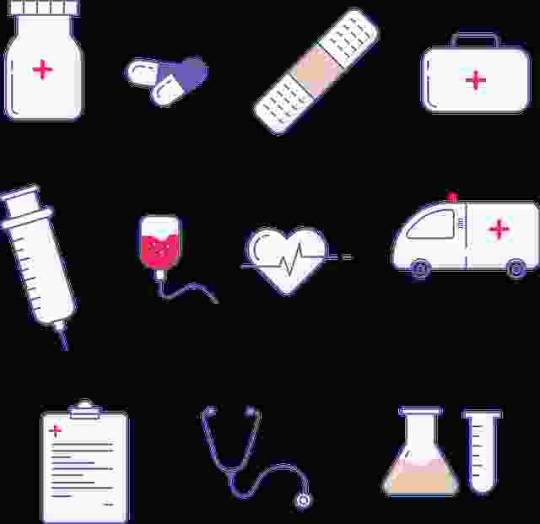#Personalized Medicine
Link
Cancer, a simple name for a complicated group of diseases, has long perplexed scientists and healthcare professionals alike. Despite years of research and medical advances, individualized therapy remains elusive. However, a recent study using multi-omics data is bringing us closer to understanding cancer’s weaknesses and maybe opening up new therapeutic options. By integrating diverse datasets across 1,768 cancer cell lines representing a spectrum of tumor types, the researchers created a comprehensive map of dependency markers – a treasure trove of potential targets for therapy. This map isn’t a one-size-fits-all blueprint, though. The beauty lies in its ability to reveal pan-cancer markers, common weaknesses shared across different cancer types, as well as tissue-specific markers, and unique vulnerabilities specific to certain tumors.
Cancer, a disease as diverse yet so deadly, has long provided a tough challenge to scientists and clinicians. While therapeutic choices have progressed, the elusive ideal of genuinely customized therapy remains out of reach. But a recent study, armed with the powerful lens of multi-omics data, is getting us closer than ever to understanding cancer’s vulnerabilities and leveraging them for therapeutic advantage. This research dives deep into the domain of dependence markers, tiny molecular flags that identify genes critical for a cancer cell’s survival. Think of them as Achilles’ heels – hidden weak areas that, when targeted, could bring down the seemingly unbeatable cancer monster. The study carefully examines four main sources of information: mutation, gene expression, copy number, and pathway activities.
Continue Reading
53 notes
·
View notes
Text
From 3D Printing to Bioprinting: The Future of Manufacturing
In recent years, the world of manufacturing has experienced significant transformations, with 3D printing and bioprinting technologies emerging as key drivers of change. These advanced manufacturing methods have the potential to revolutionize how products are created, impacting various industries and potentially reshaping the global supply chain. In this article, we will delve into the world of…

View On WordPress
#3D printing#additive manufacturing#bioprinting#decentralized production#future of manufacturing#on-demand manufacturing#personalized medicine#rapid prototyping#sustainability#tissue engineering
2 notes
·
View notes
Text
New Study Identifies Personalized Brain Circuit Scores to Enhance Depression and Anxiety Treatment
Discover how personalized brain circuit scores are revolutionizing the treatment of depression and anxiety! This groundbreaking study identifies specific biotypes, paving the way for precision psychiatry and better patient outcomes. Read more on our blog.
A revolutionary study published in Nature Medicine has unveiled a novel approach to diagnosing and treating depression and anxiety using personalized brain circuit scores. This innovative research, conducted by an international team of scientists, promises to advance precision psychiatry and improve treatment outcomes for these prevalent mental health disorders.
Key Findings
The study involved…

View On WordPress
#Anxiety#Biotypes#Brain Circuit Scores#Brain Imaging#Clinical Psychiatry#Cognitive Behavioral Therapy#Depression#Functional MRI#Mental Health#Mental Health Research#Personalized Medicine#Pharmacotherapy#Precision Psychiatry#Psychiatric Treatment
0 notes
Text
How Big Data Analytics is Changing Scientific Discoveries
Introduction
In the contemporary world of the prevailing sciences and technologies, big data analytics becomes a powerful agent in such a way that scientific discoveries are being orchestrated. At Techtovio, we explore this renewed approach to reshaping research methodologies for better data interpretation and new insights into its hastening process. Read to continue
#CategoriesScience Explained#Tagsastronomy data analytics#big data analytics#big data automation#big data challenges#big data in healthcare#big data in science#big data privacy#climate data analysis#computational data processing#data analysis in research#data-driven science#environmental research#genomics big data#personalized medicine#predictive modeling in research#real-time scientific insights#scientific data integration#scientific discoveries#Technology#Science#business tech#Adobe cloud#Trends#Nvidia Drive#Analysis#Tech news#Science updates#Digital advancements#Tech trends
1 note
·
View note
Text
Are seasonal allergies making you dread the arrival of spring? Don’t let them ruin your day. Here at Prescription Center Pharmacy, a trusted retail pharmacy in Union City, New Jersey, we understand the struggle all too well. That’s why we’re here to offer you the ultimate guide to finding relief and reclaiming your enjoyment of the beautiful New Jersey weather, free from the annoyance of sniffles and sneezes.
0 notes
Text
The concept of visiting nurse practitioners or providers is gaining momentum as a convenient and personalized approach to healthcare. Gone are the days of sitting for hours in a crowded waiting room. With visiting physicians in Mississippi, healthcare comes to you, wherever you are. Whether you’re a busy professional, a caregiver for a loved one, or simply prefer the comfort of your own home, these healthcare professionals bring quality medical care right to your doorstep.
0 notes
Text
Biomarkers Market: Comprehensive Analysis and Future Prospects
Introduction to the Biomarkers Market
The biomarkers market has witnessed substantial growth over the past decade, driven by advancements in biotechnology and increasing demand for personalized medicine. Biomarkers, which are measurable indicators of biological processes, conditions, or diseases, play a pivotal role in disease diagnosis, prognosis, and therapeutic monitoring. This article delves into the various aspects of the biomarkers market, including its current landscape, key drivers, challenges, and future prospects.
Current Landscape of the Biomarkers Market
Market Size and Growth
The global biomarkers market was valued at approximately USD 45 billion in 2023 and is projected to reach USD 86 billion by 2030, growing at a compound annual growth rate (CAGR) of around 10%. This robust growth can be attributed to several factors, including the rising prevalence of chronic diseases, increasing investment in research and development, and technological advancements in biomarker discovery and validation.
Key Market Segments
The biomarkers market can be segmented based on type, application, disease indication, and region.
By Type: The market includes safety biomarkers, efficacy biomarkers, and validation biomarkers.
By Application: Applications range from diagnostics and drug discovery to personalized medicine and disease risk assessment.
By Disease Indication: The primary disease indications include cancer, cardiovascular diseases, neurological diseases, and immunological diseases.
By Region: Major regions covered are North America, Europe, Asia-Pacific, Latin America, and the Middle East & Africa.
Key Drivers of the Biomarkers Market
Advancements in Biotechnology
Technological innovations in genomics, proteomics, and metabolomics have revolutionized the field of biomarker discovery. Advanced techniques such as next-generation sequencing (NGS), mass spectrometry, and bioinformatics tools have enabled the identification and validation of novel biomarkers with higher precision and efficiency.
Rising Prevalence of Chronic Diseases
The increasing incidence of chronic diseases such as cancer, diabetes, and cardiovascular disorders has spurred the demand for biomarkers. These diseases require early and accurate diagnosis for effective management, which biomarkers can provide.
Growing Focus on Personalized Medicine
Personalized medicine, which tailor’s treatment plans to individual patients based on their genetic and molecular profiles, heavily relies on biomarkers. The push towards personalized healthcare solutions has significantly boosted the biomarker market.
Government and Private Sector Investment
Substantial funding from government bodies, healthcare organizations, and private investors has accelerated biomarker research. Initiatives such as the Precision Medicine Initiative and the Cancer Moonshot have provided significant financial support for biomarker development.
Challenges in the Biomarkers Market
Regulatory Hurdles
The regulatory landscape for biomarkers is complex and varies across regions. Stringent regulations and lengthy approval processes can hinder the timely introduction of new biomarkers to the market.
High Costs of Biomarker Development
Developing and validating biomarkers is an expensive process, involving high costs in research, clinical trials, and regulatory compliance. These costs can be a barrier, especially for smaller companies and research institutions.
Technical Challenges
Despite technological advancements, there are still significant technical challenges in biomarker discovery and validation. Issues such as reproducibility, sensitivity, and specificity can affect the reliability of biomarkers.
Future Prospects of the Biomarkers Market
Emerging Technologies
The future of the biomarkers market looks promising with the advent of emerging technologies such as artificial intelligence (AI), machine learning (ML), and digital biomarkers. AI and ML can analyze large datasets to identify potential biomarkers more efficiently, while digital biomarkers, collected through wearable devices and mobile health apps, offer new avenues for monitoring and diagnosing diseases.
Expansion in Emerging Markets
The biomarkers market is expected to witness significant growth in emerging economies such as China, India, and Brazil. These regions are investing heavily in healthcare infrastructure and research, providing new opportunities for market expansion.
Collaborations and Partnerships
Strategic collaborations between pharmaceutical companies, research institutions, and technology providers are likely to drive innovation and growth in the biomarkers market. These partnerships can facilitate the sharing of knowledge, resources, and technologies, leading to the development of more effective biomarkers.
Increasing Application in Clinical Trials
Biomarkers are becoming increasingly integral to clinical trials, aiding in patient selection, stratification, and monitoring therapeutic responses. Their use in clinical trials is expected to grow, enhancing the efficiency and success rates of drug development processes.
Conclusion
The biomarkers market is poised for significant growth, driven by technological advancements, rising disease prevalence, and the growing focus on personalized medicine. Despite challenges such as regulatory hurdles and high development costs, the future looks bright with the emergence of new technologies and expanding market opportunities. The continued investment in biomarker research and strategic collaborations will be crucial in realizing the full potential of biomarkers in improving healthcare outcomes.
#Biomarkers Market#Biomarkers Market Analysis#Global Biomarkers Market#Biomarkers Industry Trends#Personalized Medicine#Chronic Disease Diagnostics#Biomarker Technology Advancements#Biomarker Market Drivers#Biomarker Market Challenges
0 notes
Text
In modern healthcare, personalized medicine stands out as a beacon of hope, offering tailored treatments that cater to individual patient needs. Compounding is at the heart of this revolutionary approach, which allows pharmacists to customize medications according to specific patient requirements. Compounding services encompass a range of techniques that enable the creation of unique formulations, ensuring optimal therapeutic outcomes for patients with diverse medical needs.
0 notes
Text
Every individual reacts differently to medications due to unique genetic makeup. The community has embraced pharmacogenetics testing in Addison, Texas to tailor medical treatments more precisely. This form of testing identifies variations in genes that influence how a patient processes and responds to drugs. By examining these genetic differences, healthcare providers can determine the most effective medications and dosages, reducing the risk of adverse reactions and enhancing therapeutic outcomes.
0 notes
Text
How Biotech is Revolutionizing Stem Cell Research: Insights and Innovations
fields that have become increasingly intertwined. As we delve deeper into the potential of stem cells, biotechnology companies are at the forefront, developing innovative technologies and techniques that could potentially revolutionize treatments for various diseases and conditions. This article provides a comprehensive overview of how biotechnology is influencing stem cell research, detailing…

View On WordPress
#3D Bioprinting#Biomedical Research#Clinical Trials#CRISPR#Drug Developmen#Ethical Issues in Science#gene editing#genetic engineering#GPT Biotechnology#healthcare technology#iPSCs#Medical innovation#personalized medicine#Regenerative medicine#Stem cells
0 notes
Link
A team of researchers at Deep Genomics Inc. developed BigRNA, a foundation model for understanding the biological functions and mechanisms of RNA molecules. Two challenges faced by researchers over the years have been modeling RNA correctly and predicting its features, especially when considering interpreting genetic variations and attempting to formulate personalized therapeutics. By feeding information on DNA sequences to the model beforehand, it has been trained on multiple datasets for the purpose of predicting the expression of RNA for specific tissues, the specificity of RNA binding properties, and binding sites for microRNAs (miRNAs).
Researchers have been working on machine learning (ML) models that can use DNA sequences to predict gene expression for many years. This is now made possible with rapid advancements in artificial intelligence (AI) and deep learning (DL). They have contributed to drug discovery by giving us a much better understanding of the effects of pathogenic variants of genes on gene processing and expression and have enabled research on personalized medicine that can deal with the consequences of such variants.
Previous models lacked the ability to predict specific gene expression levels and could only predict them on a general scale. They could not detect changes that took place in regulatory mechanisms, such as transcriptional deviations observed in the processes of splicing and polyadenylation.
Continue Reading
44 notes
·
View notes
Text
Harnessing the Power of AI: Embracing Technology in Healthcare

In today's rapidly advancing healthcare landscape, the integration of cutting-edge technologies is revolutionizing patient care and clinical practices. Among these technologies, Embracing Technology such as Artificial Intelligence (AI) is reshaping the way healthcare is delivered and experienced. In this blog post, we'll explore how healthcare organizations are harnessing the power of AI and other innovative technologies, including AI-powered Diagnostics, Personalized Medicine, Robotic-Assisted Surgery, Predictive Analytics, and Virtual Assistants & Chatbots, to enhance patient outcomes and improve operational efficiency.
AI-powered Diagnostics are transforming the field of medical diagnostics by leveraging machine learning algorithms to analyze complex datasets and identify patterns indicative of various diseases and conditions. AI-driven diagnostic tools can analyze medical images, laboratory results, and patient data with unparalleled accuracy and efficiency, enabling earlier detection and more precise diagnosis of diseases such as cancer, cardiovascular disorders, and neurological conditions.
Personalized Medicine is revolutionizing patient care by tailoring treatment plans to individual patients' genetic makeup, lifestyle factors, and disease characteristics. AI algorithms analyze vast amounts of patient data to identify optimal treatment strategies, predict treatment responses, and minimize adverse effects. By personalizing treatment approaches, healthcare providers can optimize therapeutic outcomes and improve patient satisfaction.
Robotic-Assisted Surgery is enhancing surgical precision and patient outcomes by combining the expertise of surgeons with the precision and dexterity of robotic systems. AI-powered surgical robots assist surgeons in performing complex procedures with greater accuracy, reduced invasiveness, and shorter recovery times. From minimally invasive surgeries to delicate procedures such as neurosurgery and cardiac surgery, robotic-assisted surgery is transforming the surgical landscape and expanding treatment options for patients.

Predictive Analytics harnesses the power of AI and big data to forecast patient outcomes, identify high-risk populations, and optimize resource allocation. By analyzing vast amounts of patient data, including electronic health records, medical imaging studies, and genomic information, predictive analytics models can anticipate disease progression, predict hospital readmissions, and guide preventive interventions. Healthcare organizations use predictive analytics to improve clinical decision-making, optimize care delivery, and reduce healthcare costs.
Virtual Assistants & Chatbots are enhancing patient engagement and access to care by providing on-demand support, information, and assistance. AI-powered virtual assistants and chatbots interact with patients through natural language processing technologies, answering questions, scheduling appointments, and providing personalized health recommendations. By offering convenient and accessible support, virtual assistants and chatbots empower patients to take an active role in managing their health and well-being.
In conclusion, Embracing Technology such as AI is transforming healthcare delivery by enhancing diagnostic accuracy, enabling personalized treatment approaches, improving surgical precision, facilitating predictive analytics, and enhancing patient engagement. By leveraging the power of AI-driven technologies such as AI-powered Diagnostics, Personalized Medicine, Robotic-Assisted Surgery, Predictive Analytics, and Virtual Assistants & Chatbots, healthcare organizations can deliver more efficient, effective, and patient-centered care in the digital age.
#AI-powered Diagnostics#Personalized Medicine#Robotic-Assisted Surgery#Predictive Analytics#Virtual Assistants & Chatbots
0 notes
Text
Pain management in Massachusetts is a critical aspect of healthcare, affecting countless individuals seeking relief from various conditions. From chronic pain to neuropathic discomfort, the journey to finding practical solutions can be arduous. However, recent personalized prescription innovations offer new hope through customized medication options.
0 notes
Text
Biotech Breakthroughs: Cutting-Edge Innovations That Will Change Health Care
Introduction
The field of biotechnology is at the forefront of some of the most groundbreaking advancements in healthcare. With new discoveries and innovations emerging at an unprecedented rate, biotech is poised to transform the way we approach health care. From revolutionary treatments to personalized medicine, the potential of biotech to improve lives is immense. In this article, we’ll delve into the most significant biotech breakthroughs and how they are set to change health care as we know it. Read to continue
#Tech Trends#Tagsadvanced drug development#AI in drug development#biopharmaceuticals#biotech breakthroughs#biotech in diagnostics#cancer immunotherapy#cutting-edge innovations in health care#digital therapeutics#gene editing CRISPR-Cas9#liquid biopsies#neurotechnology#next-generation sequencing#personalized medicine#point-of-care testing#psychobiotics#regenerative medicine#stem cell therapy#tissue engineering#Technology#Science#business tech#Adobe cloud#Trends#Nvidia Drive#Analysis#Tech news#Science updates#Digital advancements#Tech trends
1 note
·
View note
Text

Innovative Approaches in Regenerative Medicine:
As the field of regenerative medicine progresses, researchers are exploring novel technologies and strategies to advance tissue regeneration and functional recovery. Among these innovations is 3D bioprinting, a technique that allows precise placement of cells, biomaterials, and bioactive substances to construct intricate, hierarchical structures resembling natural tissues and organs. Through the utilization of 3D bioprinting, scientists can produce personalized tissue constructs with meticulous spatial organization and vascularization, addressing the limitations of conventional tissue engineering methods. This innovation holds significant promise across various applications, including organ transplantation, tissue replacement, drug screening, and disease modeling. Additionally, breakthroughs in organoid culture and organ-on-a-chip systems are transforming our ability to replicate human physiology and disease in laboratory settings, offering novel platforms for drug discovery, toxicity testing, and personalized medicine. These miniature organ models faithfully mimic the structure and function of native tissues and organs, providing valuable insights into disease mechanisms and facilitating the development of targeted therapies.
Challenges and Considerations:
Despite the impressive advancements in regenerative medicine, numerous challenges and considerations must be addressed to fully realize its clinical potential. Standardizing protocols for cell production, quality assurance, and scaling up manufacturing to meet clinical demands remains a significant hurdle. Furthermore, navigating regulatory and ethical issues related to the use of stem cells and tissue-engineered products in clinical settings is crucial to ensuring patient safety and upholding ethical standards. Long-term safety and efficacy studies are also imperative to evaluate the sustainability of regenerative therapies over time.
Role of Comprehensive Health Assessments in Regenerative Medicine:
Comprehensive health assessments play a pivotal role in the realm of regenerative medicine, serving as a foundation for patient evaluation, treatment planning, and monitoring of therapeutic outcomes. These assessments encompass a holistic evaluation of an individual's health, including medical history, physical exams, diagnostic tests, imaging studies, and biomarker analyses. By conducting thorough assessments of organ function, tissue integrity, and overall physiological well-being, healthcare providers can identify underlying health conditions, risk factors, and potential contraindications for regenerative therapies. This allows for the customization of treatment plans to meet the specific needs of each patient, optimizing therapeutic outcomes and minimizing risks. Furthermore, regular monitoring of patients undergoing regenerative therapies through comprehensive health assessments enables healthcare providers to evaluate treatment efficacy, safety, and long-term durability. By tracking changes in clinical parameters, biomarkers, and imaging results, healthcare providers can assess treatment response, detect adverse effects or complications, and modify treatment strategies as necessary to enhance patient outcomes.
There are many good hospitals in India that offer health checkup packages for undergoing a regular full body health checkup that play an important role in regenerative medicine.
#regenerative medicine#full body health checkup#health checkup packages#regular health checkups#physical examination#medical history#diagnostic tests#imaging tests#biomarker analysis#organ transplantation#tissue replacement#drug screening#disease modeling#personalized medicine
0 notes